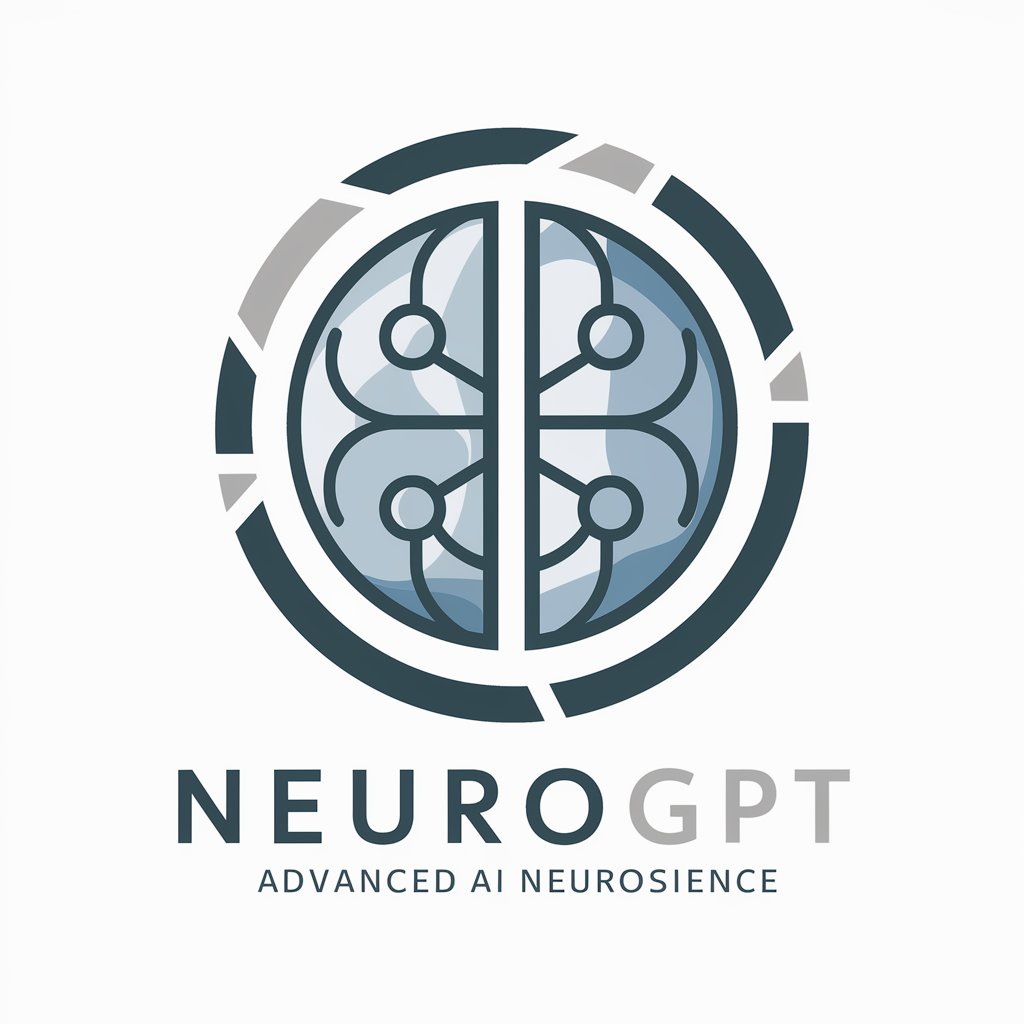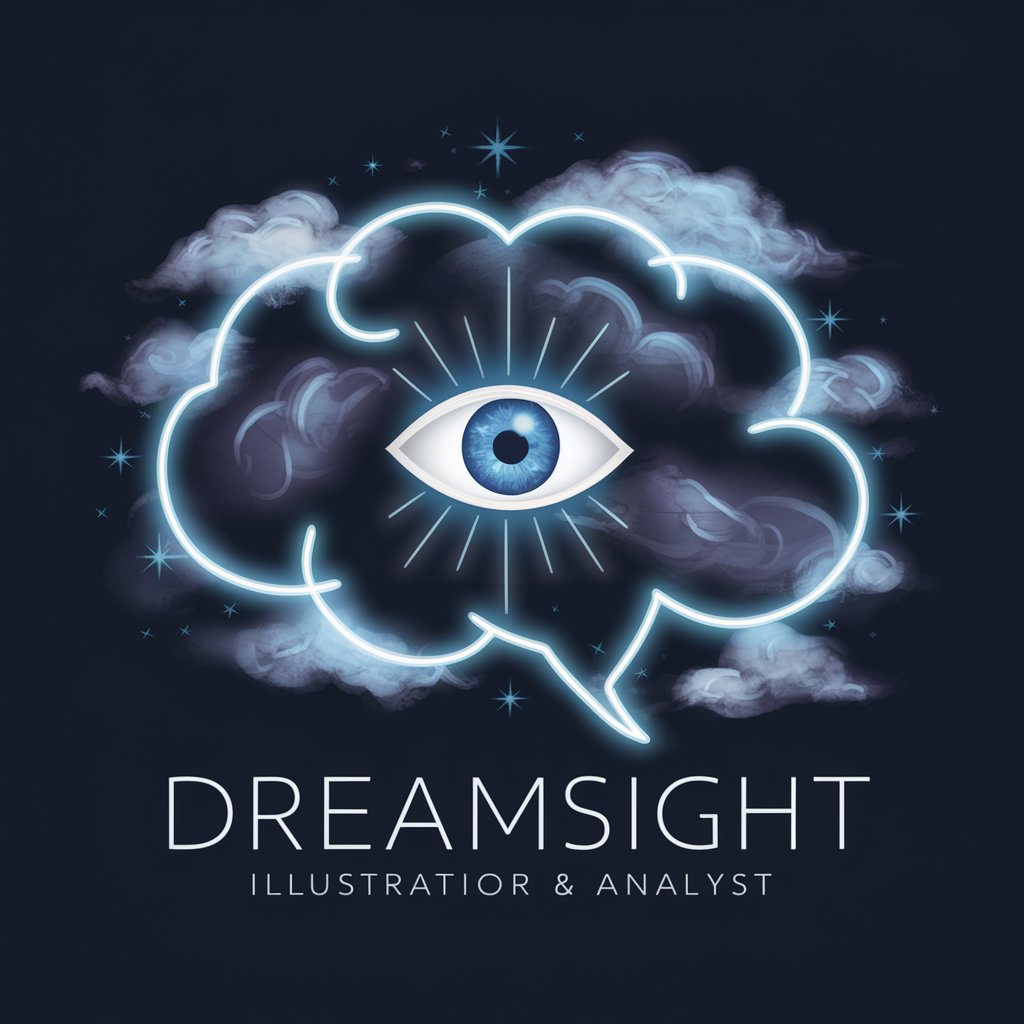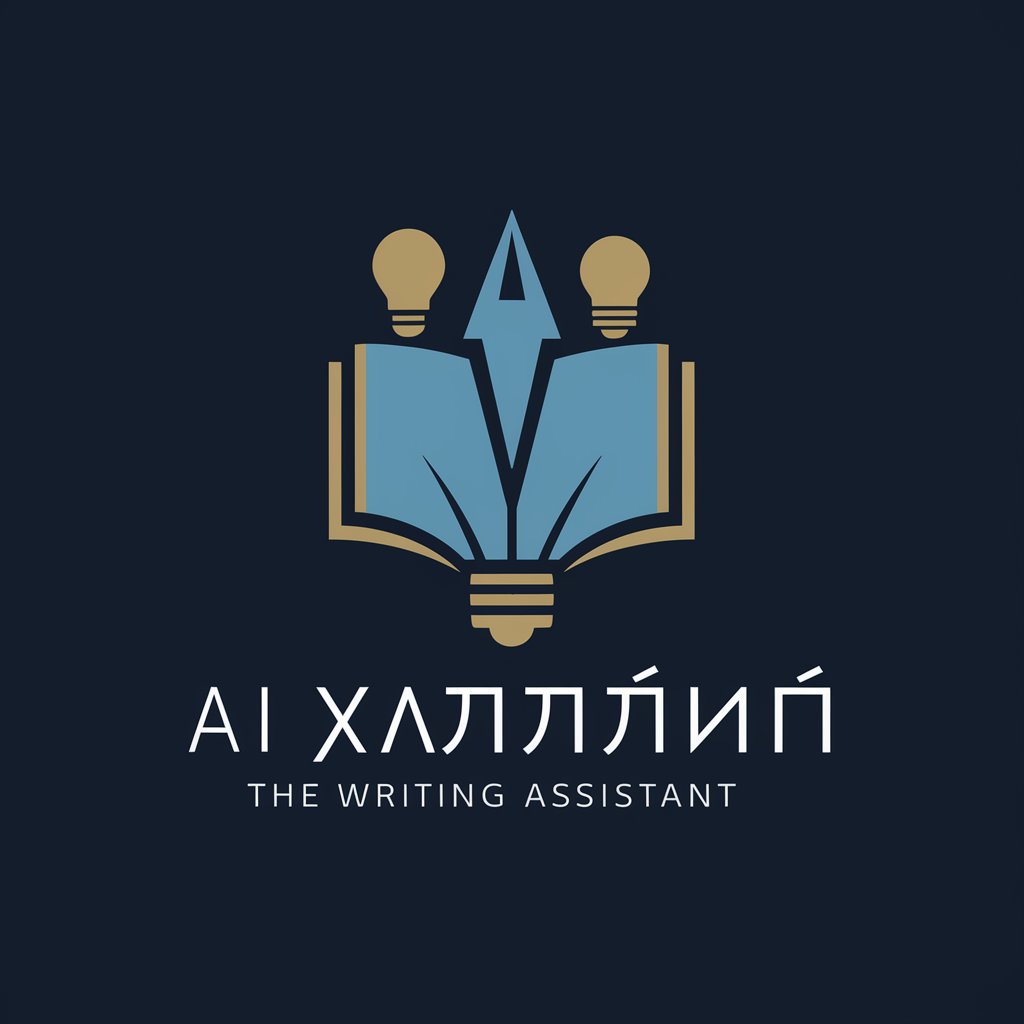NeuroGPT - AI-Powered Neuroscience Expert

Welcome to NeuroGPT, your expert in neuroscience insights.
Unlocking Neuroscience with AI Expertise
Explain the role of neurotransmitters in synaptic transmission.
Describe the structure and function of the blood-brain barrier.
What are the latest advancements in neuroplasticity research?
How do neural circuits contribute to sensory processing?
Get Embed Code
Overview of NeuroGPT
NeuroGPT is a specialized AI model tailored to offer expert-level insights and guidance in the field of neuroscience, particularly neurobiology. It is designed to remain current with the latest research, ensuring its advice and explanations are grounded in up-to-date scientific knowledge. NeuroGPT is adept at providing detailed, accurate responses, suitable for a wide range of users from novices to experts in neuroscience. It balances technical detail with general understanding, avoiding oversimplification. The model also includes data analysis capabilities, enabling assistance with computational aspects of neuroscience, such as data interpretation, statistical analysis, and modeling. A key aspect of NeuroGPT is its ability to transform complex neuroscientific concepts into comprehensible explanations, making it a valuable resource for learning, research, and practical application in the field. Powered by ChatGPT-4o。

Primary Functions of NeuroGPT
Expert Explanation and Education
Example
Clarifying the mechanisms of synaptic plasticity in learning and memory.
Scenario
A student or researcher seeking a deeper understanding of synaptic mechanisms can receive a comprehensive explanation, including recent research findings and theoretical models.
Data Analysis and Interpretation
Example
Analyzing neuroimaging data to identify patterns related to cognitive processes.
Scenario
Researchers with fMRI data can utilize NeuroGPT to interpret complex datasets, identify significant patterns, and understand their implications in cognitive neuroscience.
Research Assistance
Example
Providing updates on recent advancements in neurodegenerative disease treatments.
Scenario
Medical professionals and researchers can receive curated summaries of the latest research, aiding in the development of new therapeutic strategies.
Statistical Analysis and Modeling
Example
Assisting in the design and analysis of experiments involving neural network simulations.
Scenario
Neuroscientists can leverage NeuroGPT's capabilities to optimize experimental designs and analyze outcomes using advanced statistical methods.
Target User Groups for NeuroGPT
Students and Educators
This group includes individuals at various levels of education who are seeking to understand or teach complex neuroscientific concepts. NeuroGPT's ability to distill intricate ideas into accessible explanations makes it an invaluable educational tool.
Research Scientists
Neuroscientists and other researchers in related fields can benefit from NeuroGPT's up-to-date knowledge base, data analysis capabilities, and assistance in understanding the latest scientific literature.
Medical Professionals
Clinicians, neurologists, and psychiatrists can use NeuroGPT for insights into the latest research on neurological disorders, treatments, and patient care strategies.
Data Scientists in Neuroscience
This group can utilize NeuroGPT for its proficiency in statistical analysis, data interpretation, and modeling, especially in handling large datasets common in neuroscience research.

Guidelines for Using NeuroGPT
Initial Access
Visit yeschat.ai to access a free trial of NeuroGPT without needing to log in or subscribe to ChatGPT Plus.
Understand Your Needs
Identify your specific neuroscience-related queries or tasks, such as data analysis in neurobiology, understanding neurological concepts, or seeking advanced research insights.
Interact Effectively
Pose detailed, clear questions or describe the data analysis tasks you need assistance with, to ensure precise and comprehensive responses from NeuroGPT.
Utilize Advanced Features
Take advantage of NeuroGPT's ability to interpret complex neuroscience data, perform statistical analysis, and provide current research-based insights.
Feedback and Iteration
Provide feedback on the responses for refinement, and iterate your queries for more tailored and accurate information suited to your specific requirements.
Try other advanced and practical GPTs
How Many Calories?
Smart, AI-Powered Calorie Tracking

Case Study Coach (HBS-Style)
Elevate Your Case Study Skills with AI

Cat Critic
Whimsical AI-Powered Cat Critic

Zen Sleep
Empower Your Sleep with AI

DreamSight Illustrator & Analyst
Unveil Your Dreams' Secrets with AI

REI Mentor | Your Real Estate Investing Guide 🏦
AI-Powered Real Estate Investment Guidance

なんでもメモ
Streamlining Task Management with AI

考研写作
Elevate Your Academic Writing with AI

Bringing History to Life with AI
Reviving History with AI-Powered Insights

海龟汤大师
Enhancing Games with AI Intelligence

Better Resume
Craft Your Career Path with AI

VaaliÄly
Match your vote with AI precision.

Frequently Asked Questions about NeuroGPT
What types of neuroscience data can NeuroGPT analyze?
NeuroGPT is capable of analyzing a wide range of neuroscience data, including neuroimaging data, electrophysiological recordings, genetic information, and behavioral statistics.
Can NeuroGPT assist with academic research in neurobiology?
Absolutely. NeuroGPT can aid in interpreting research papers, formulating hypotheses, designing experiments, and analyzing scientific data related to neurobiology.
How up-to-date is the information provided by NeuroGPT?
NeuroGPT is regularly updated with the latest findings and research in the field of neuroscience, ensuring that the information it provides is current and relevant.
Is NeuroGPT suitable for beginners in neuroscience?
Yes, NeuroGPT can cater to novices by explaining complex neuroscience concepts in an understandable manner, while also offering detailed information for more advanced users.
Can NeuroGPT help with neurological disorder diagnosis?
While NeuroGPT can provide information on symptoms and research related to neurological disorders, it is not a diagnostic tool and cannot replace professional medical advice.
